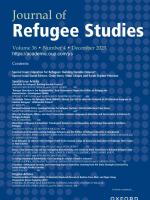Humanitarian hacking: When big tech companies want to solve refugee crises

Tech-focused hackathons, where volunteer "hackers" compete to find digital solutions for humanitarian issues, have gained popularity in the nonprofit sector. However, these events rarely yield practical solutions for those in need.
In this article in the Journal of Refugee Studies, DIIS researcher Sofie Henriksen analyzed humanitarian hacking as part of a broader trend towards humanitarian innovation. Ethnographic data from two hackathons in Copenhagen, both aimed at “hacking the refugee crisis”, revealed that while they did not produce usable solutions for Danish refugees, they reframed the crisis as a "technical problem," providing participants with a rewarding experience. Sponsors like Google used these events to promote their products as "tech for good."
This highlights how humanitarian hacking primarily benefits the providers rather than the recipients of aid, challenging traditional notions of what humanitarianism is, who should perform it, and who it is for. Moreover, the article sheds light on the growing integration of refugee aid and digital capitalism. While tech companies are positioned as key humanitarian players, their involvement raises concerns about their opaque data practices and business agendas.
In conclusion, humanitarian hacking reveals the complexities of modern aid efforts, urging for critical examination of the role of Big Tech in shaping humanitarian responses.
DIIS Experts


